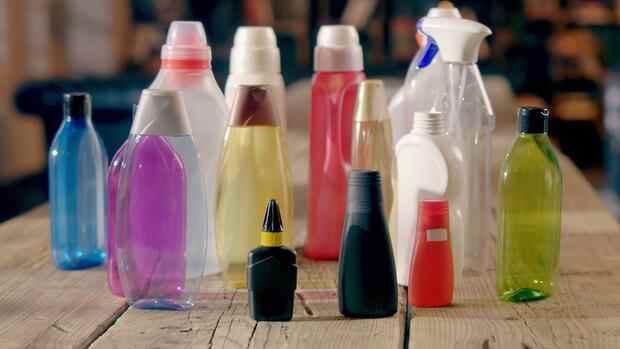The Düsseldorf-based consumer goods manufacturer is also looking for ways to avoid and reduce plastic.
When it comes to climate issues, we already know: it takes revenge if measures are postponed for a long time. This also applies to plastic packaging. All manufacturers of creams, shampoos and deodorants have set themselves ambitious goals to avoid new plastic. Nivea producer Beiersdorf, for example, wants to make at least 30 percent of its packaging from recyclable plastic by 2025.
But it will be difficult for the consumer goods giants to achieve these goals, nor are they far from it. Old plastic is in short supply: At the large recycling companies, recycled material is sold out by the end of the year.
The industry cannot be blamed for being idle. She is researching plastic-free alternatives, designing tubes and bottles with less plastic. But she only addressed the problem late and under public pressure.
Persil producer Henkel presented specific packaging targets in 2018, Beiersdorf in 2019, and cosmetics manufacturer L’Oréal even needed until 2020 to formulate more ambitious projects. The family company Werner & Mertz, manufacturer of the “Frosch” cleaning agents, was already using 95 percent recyclable plastic. But the large corporations with their mass brands would have a more effective lever to do something good for the environment.
Top jobs of the day
Find the best jobs now and
be notified by email.
There may be reasons for their earlier reluctance: crude oil and thus the price of brand-new plastic have long been cheap, environmental movements such as Fridays for Future have only gained significantly in importance in recent years. But now the processes have to be changed in a few years, since consumers are demanding alternatives and political requirements for a recycled content in packaging are threatened.
According to experts, just increasing the share from today’s estimated 13 to 30 percent will cost the industry at least 1.7 billion euros, most of which will have to be paid by Henkel and Co. Just because the corporations postponed the costs at the time doesn’t mean they have been canceled. A quick change is likely to be even more expensive. Being too late – that just takes revenge.
More: The billion-dollar illusion: a lack of plastic will act as a brake on the switch to a circular economy.
